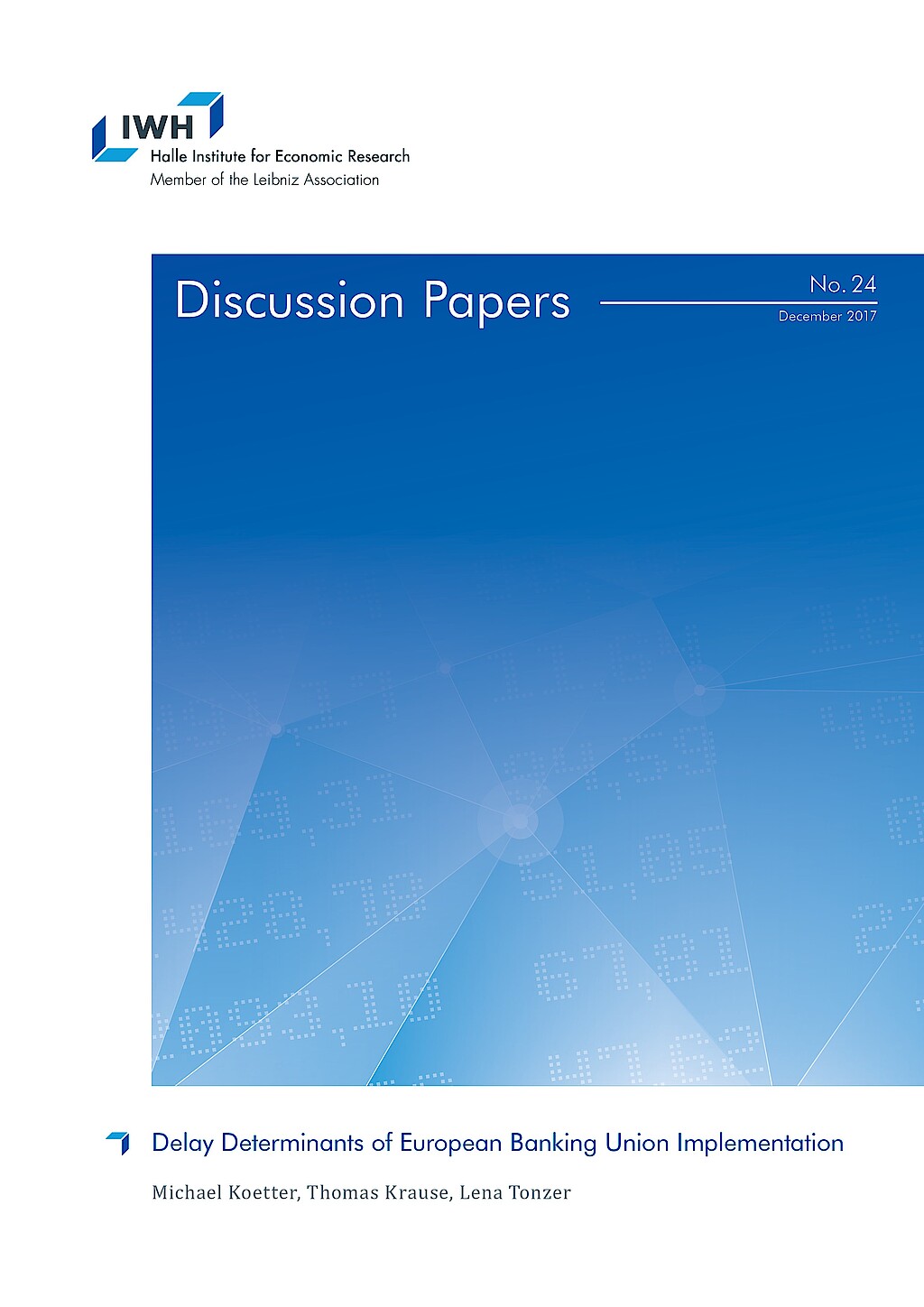What is holding back the banking union?
The European banking union has set itself the goal of harmonising banking regulations across national borders, in order to improve financial stability within the European Union (EU). The aim is that taxpayers will no longer have to bail out insolvent banks in the future. To achieve this, the banking union is based on three pillars: firstly, a common banking authority that is intended to supervise the major banks in the eurozone. Secondly, a standard mechanism for winding up insolvent financial institutions and establishing rules for the assumption of losses of the banks' creditors. And thirdly, consistent guidelines for deposit protection.
Most EU Member States have failed to implement these directives within the deadline set by the European Commission. Belgium, Lithuania, Poland and Slovenia, in particular, have taken a long time to incorporate the directives into national legislation, while Germany and Austria have been the quickest to do so.
There are several reasons for these delays: "Governments may want to protect their national banking sector from stricter regulations or are in principal unwilling to delegate any more control to the EU. Technical obstacles are also a possibility if the national banking system to which the new directives are to be applied is highly complex," says Koetter, Head of the Financial Markets Department at IWH. However, the research group also considered other options: "Existing regulations or even political and institutional framework conditions could also be responsible for the delays, for example if a Member State's fiscal room for manoeuvre is restricted or if a particularly large number of parties and officials are involved in decision-making. Differences in the efficiency of Member States' legal systems are another possibility. We therefore looked at a whole range of options," says Koetter.
Among the many possible explanations, primarily national regulations were found to be standing in the way of rapid implementation. The economists discovered that the more heavily a financial market is regulated, the greater the process is delayed – possibly because an already heavily regulated banking system requires greater adjustment. If, however, existing regulations are already compatible with the new directives and the corresponding banking union pillar is based, as it were, on existing regulations, the process is accelerated. Political factors also explained the delays, but not to the same extent as regulation. "In particular, the number of political parties in a country plays a role. Implementation of the banking union is noticeably slower when lots of parties are involved in the decision-making process," says Koetter.
The banking union will only be successful if, despite national differences, the directives are uniformly implemented without any further major delays, to allow the banking union to operate effectively. Only then will market players recognise the banking union as an institution and adjust their risk behaviour accordingly.
Whom to contact
For Researchers

Vice President Department Head
If you have any further questions please contact me.
+49 345 7753-727 Request per E-MailFor Journalists

Head of Public Relations
If you have any further questions please contact me.
+49 345 7753-765 Request per E-MailIWH list of experts
The IWH list of experts provides an overview of IWH research topics and the researchers and scientists in these areas. The relevant experts for the topics listed there can be reached for questions as usual through the IWH Press Office.
Related Publications

Welche Faktoren verzögern die Umsetzung der Bankenunion?
in: Wirtschaft im Wandel, 1, 2018
Abstract
Die Europäische Kommission hat weitreichende Reformen zur Regulierung und Überwachung des europäischen Bankensektors beschlossen, um die Stabilität europäischer Banken zu gewährleisten. In den meisten Mitgliedsländern verzögert sich allerdings die Umsetzung der zugrunde liegenden Richtlinien der Europäischen Kommission. Dieser Beitrag geht den Gründen für diese Verzögerung nach. Es zeigt sich, dass insbesondere bereits existierende Regulierungen und institutionelle Rahmenbedingungen das Tempo der Umsetzung entscheidend bestimmen. Entgegen populären Meinungsäußerungen sind die Struktur der Bankensektoren in den Mitgliedstaaten und politische Faktoren hingegen von nachrangiger Bedeutung.

Delay Determinants of European Banking Union Implementation
in: IWH Discussion Papers,
24,
2017
published in: European Journal of Political Economy
Abstract
<p>To safeguard financial stability and harmonise regulation, the European Commission substantially reformed banking supervision, resolution, and deposit insurance via EU directives. But most countries delay the transposition of these directives. We ask if transposition delays result from strategic considerations of governments conditional on the state of their financial, regulatory, and political systems? Supervisors might try to protect national banking systems and local politicians maybe reluctant to surrender national sovereignty to deal with failed banks. Alternatively, intricate financial regulation might require more implementation time in large and complex financial and political systems. We therefore collect data on the transposition delays of the three Banking Union directives and investigate observed delay variation across member states. Our correlation analyses suggest that existing regulatory and institutional frameworks, rather than banking market structure or political factors, matter for transposition delays.</p>



